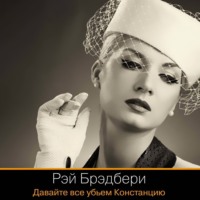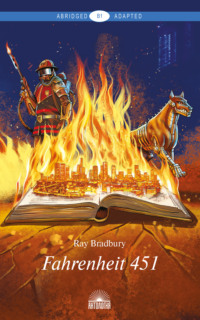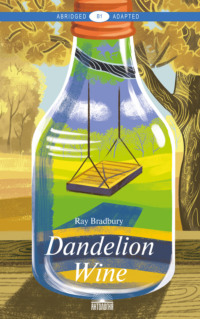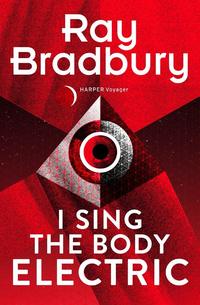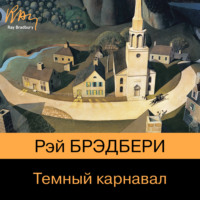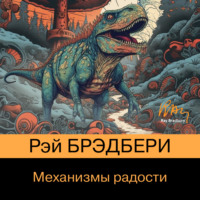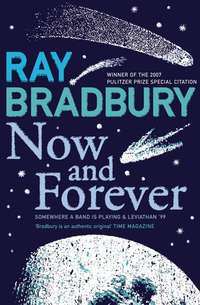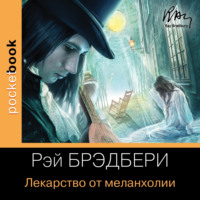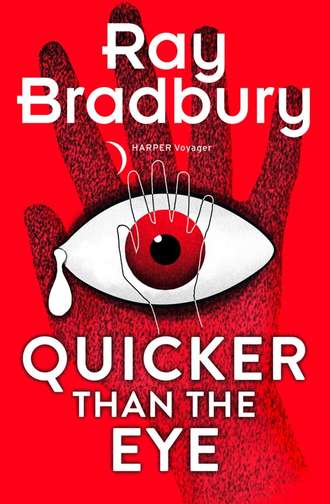
Полная версия
Quicker than the Eye
“So, at last, you’ve decided to speak?” said Douglas.
“Yes,” came the whisper.
“We wondered,” said Douglas, “when we would hear from you.” He squeezed his wife gently.
“It’s time,” the voice murmured. “So here I am.”
“Welcome, Sascha,” both said.
“Why didn’t you talk sooner?” asked Douglas Spaulding.
“I wasn’t sure that you liked me,” the voice whispered.
“Why would you think that?”
“First I was, then I wasn’t. Once I was only a name. Remember, last year, I was ready to come and stay. Scared you.”
“We were broke,” said Douglas quietly. “And nervous.”
“What’s so scary about life?” said Sascha. Maggie’s lips twitched. “It’s that other thing. Not being, ever. Not being wanted.”
“On the contrary.” Douglas Spaulding moved down on his pillow so he could watch his wife’s profile, her eyes shut, but her mouth breathing softly. “We love you. But last year it was bad timing. Understand?”
“No,” whispered Sascha. “I only understand you didn’t want me. And now you do. I should leave.”
“But you just got here!”
“Here I go, anyway.”
“Don’t, Sascha! Stay!”
“Good-bye.” The small voice faded. “Oh, good-bye.”
And then silence.
Maggie opened her eyes with quiet panic.
“Sascha’s gone,” she said.
“He can’t be!”
The room was still.
“Can’t be,” he said. “It’s only a game.”
“More than a game. Oh, God, I feel cold. Hold me.”
He moved to hug her.
“It’s okay.”
“No. I had the funniest feeling just now, as if he were real.”
“He is. He’s not gone.”
“Unless we do something. Help me.”
“Help?” He held her even tighter, then shut his eyes, and at last called:
“Sascha?”
Silence.
“I know you’re there. You can’t hide.”
His hand moved to where Sascha might be.
“Listen. Say something. Don’t scare us, Sascha. We don’t want to be scared or scare you. We need each other. We three against the world. Sascha?”
Silence.
“Well?” whispered Douglas.
Maggie breathed in and out.
They waited.
“Yes?”
There was a soft flutter, the merest exhalation on the night air.
“Yes.”
“You’re back!” both cried.
Another silence.
“Welcome?” asked Sascha.
“Welcome!” both said.
And that night passed and the next day and the night and day after that, until there were many days, but especially midnights when he dared to declare himself, pipe opinions, grow stronger and firmer and longer in half-heard declarations, as they lay in anticipatory awareness, now she moving her lips, now he taking over, both open as warm, live ventriloquists’ mouthpieces. The small voice shifted from one tongue to the other, with soft bouts of laughter at how ridiculous but loving it all seemed, never knowing what Sascha might say next, but letting him speak on until dawn and a smiling sleep.
“What’s this about Halloween?” he asked, somewhere in the sixth month.
“Halloween?” both wondered.
“Isn’t that a death holiday?” Sascha murmured.
“Well, yes …”
“I’m not sure I want to be born on a night like that.”
“Well, what night would you like to be born on?”
Silence as Sascha floated a while.
“Guy Fawkes,” he finally whispered.
“Guy Fawkes??!!”
“That’s mainly fireworks, gunpowder plots, Houses of Parliament, yes? Please to remember the fifth of November?”
“Do you think you could wait until then?”
“I could try. I don’t think I want to start out with skulls and bones. Gunpowder’s more like it. I could write about that.”
“Will you be a writer, then?”
“Get me a typewriter and a ream of paper.”
“And keep us awake with the typing?”
“Pen, pencil, and pad, then?”
“Done!”
So it was agreed and the nights passed into weeks and the weeks leaned from summer into the first days of autumn and his voice grew stronger, as did the sound of his heart and the small commotions of his limbs. Sometimes as Maggie slept, his voice would stir her awake and she would reach up to touch her mouth, where the surprise of his dreaming came forth.
“There, there, Sascha. Rest now. Sleep.”
“Sleep,” he whispered drowsily, “sleep.” And faded away.
“Pork chops, please, for supper.”
“No pickles with ice cream?” both said, almost at once.
“Pork chops,” he said, and more days passed and more dawns arose and he said: “Hamburgers!”
“For breakfast?”
“With onions,” he said.
October stood still for one day and then …
Halloween departed.
“Thanks,” said Sascha, “for helping me past that. What’s up ahead in five nights?”
“Guy Fawkes!”
“Ah, yes!” he cried.
And at one minute after midnight five days later, Maggie got up, wandered to the bathroom, and wandered back, stunned.
“Dear,” she said, sitting on the edge of the bed.
Douglas Spaulding turned over, half awake. “Yes?”
“What day is it?” whispered Sascha.
“Guy Fawkes, at last. So?”
“I don’t feel well,” said Sascha. “Or, no, I feel fine. Full of pep. Ready to go. It’s time to say good-bye. Or is it hello? What do I mean?”
“Spit it out.”
“Are there neighbors who said, no matter when, they’d take us to the hospital?”
“Yes.”
“Call the neighbors,” said Sascha.
They called the neighbors.
At the hospital, Douglas kissed his wife’s brow and listened.
“It’s been nice,” said Sascha.
“Only the best.”
“We won’t talk again. Good-bye,” said Sascha.
“Good-bye,” both said.
At dawn there was a small clear cry somewhere.
Not long after, Douglas entered his wife’s hospital room. She looked at him and said, “Sascha’s gone.”
“I know,” he said quietly.
“But he left word and someone else is here. Look.”
He approached the bed as she pulled back a coverlet.
“Well, I’ll be damned.”
He looked down at a small pink face and eyes that for a brief moment flickered bright blue and then shut.
“Who’s that?” he asked.
“Your daughter. Meet Alexandra.”
“Hello, Alexandra.” he said.
“And do you know what the nickname for Alexandra is?” she said.
“What?”
“Sascha,” she said.
He touched the small cheek very gently.
“Hello, Sascha,” he said.
Another Fine Mess
The sounds began in the middle of summer in the middle of the night.
Bella Winters sat up in bed about three a.m. and listened and then lay back down. Ten minutes later she heard the sounds again, out in the night, down the hill.
Bella Winters lived in a first-floor apartment on top of Vendome Heights, near Effie Street in Los Angeles, and had lived there now for only a few days, so it was all new to her, this old house on an old street with an old staircase, made of concrete, climbing steeply straight up from the lowlands below, one hundred and twenty steps, count them. And right now …
“Someone’s on the steps,” said Bella to herself.
“What?” said her husband, Sam, in his sleep.
“There are some men out on the steps,” said Bella. “Talking, yelling, not fighting, but almost. I heard them last night, too, and the night before, but …”
“What?” Sam muttered.
“Shh, go to sleep. I’ll look.”
She got out of bed in the dark and went to the window, and yes, two men were indeed talking out there, grunting, groaning, now loud, now soft. And there was another noise, a kind of bumping, sliding, thumping, like a huge object being carted up the hill.
“No one could be moving in at this hour of the night, could they?” asked Bella of the darkness, the window, and herself.
“No,” murmured Sam.
“It sounds like …”
“Like what?” asked Sam, fully awake now.
“Like two men moving—”
“Moving what, for God’s sake?”
“Moving a piano. Up those steps.”
“At three in the morning!?”
“A piano and two men. Just listen.”
The husband sat up, blinking, alert.
Far off, in the middle of the hill, there was a kind of harping strum, the noise a piano makes when suddenly thumped and its harp strings hum.
“There, did you hear?”
“Jesus, you’re right. But why would anyone steal—’’
“They’re not stealing, they’re delivering.”
“A piano?”
“I didn’t make the rules, Sam. Go out and ask. No. don’t; I will.”
And she wrapped herself in her robe and was out the door and on the sidewalk.
“Bella,” Sam whispered fiercely behind the porch screen. “Crazy.”
“So what can happen at night to a woman fifty-five, fat, and ugly?” she wondered.
Sam did not answer.
She moved quietly to the rim of the hill. Somewhere down there she could hear the two men wrestling with a huge object. The piano on occasion gave a strumming hum and fell silent. Occasionally one of the men yelled or gave orders.
“The voices,” said Bella. “I know them from somewhere,” she whispered and moved in utter dark on stairs that were only a long pale ribbon going down, as a voice echoed:
“Here’s another fine mess you’ve got us in.”
Bella froze. Where have I heard that voice, she wondered, a million times!
“Hello,” she called.
She moved, counting the steps, and stopped.
And there was no one there.
Suddenly she was very cold. There was nowhere for the strangers to have gone to. The hill was steep and a long way down and a long way up, and they had been burdened with an upright piano, hadn’t they?
How come I know upright? she thought. I only heard. But—yes, upright! Not only that, but inside a box!
She turned slowly and as she went back up the steps, one by one, slowly, slowly, the voices began to sound again, below, as if, disturbed, they had waited for her to go away.
“What are you doing?” demanded one voice.
“I was just—” said the other.
“Give me that!” cried the first voice.
That other voice, thought Bella, I know that, too. And I know what’s going to be said next!
“Now,” said the echo far down the hill in the night, “just don’t stand there, help me!”
“Yes!” Bella closed her eyes and swallowed hard and half fell to sit on the steps, getting her breath back as black-and-white pictures flashed in her head. Suddenly it was 1929 and she was very small, in a theater with dark and light pictures looming above the first row where she sat, transfixed, and then laughing, and then transfixed and laughing again.
She opened her eyes. The two voices were still down there, a faint wrestle and echo in the night, despairing and thumping each other with their hard derby hats.
Zelda, thought Bella Winters. I’ll call Zelda. She knows everything. She’ll tell me what this is. Zelda, yes!
Inside, she dialed Z and E and L and D and A before she saw what she had done and started over. The phone rang a long while until Zelda’s voice, angry with sleep, spoke halfway across L.A.
“Zelda, this is Bella!”
“Sam just died?”
“No, no, I’m sorry—”
“You’re sorry?”
“Zelda, I know you’re going to think I’m crazy, but …”
“Go ahead, be crazy.”
“Zelda, in the old days when they made films around L.A., they used lots of places, right? Like Venice, Ocean Park …”
“Chaplin did, Langdon did, Harold Lloyd, sure.”
“Laurel and Hardy?”
“What?”
“Laurel and Hardy, did they use lots of locations?”
“Palms, they used Palms lots, Culver City Main Street, Effie Street.”
“Effie Street!”
“Don’t yell, Bella.”
“Did you say Effie Street?”
“Sure, and God, it’s three in the morning!”
“Right at the top of Effie Street!?”
“Hey, yeah, the stairs. Everyone knows them. That’s where the music box chased Hardy downhill and ran over him.”
“Sure, Zelda, sure! Oh, God, Zelda, if you could see, hear, what I hear!”
Zelda was suddenly wide awake on the line. “What’s going on? You serious?”
“Oh, God, yes. On the steps just now, and last night and the night before maybe, I heard, I hear—two men hauling a—a piano up the hill.”
“Someone’s pulling your leg!”
“No, no, they’re there. I go out and there’s nothing. But the steps are haunted, Zelda! One voice says: ‘Here’s another fine mess you’ve got us in.’ You got to hear that man’s voice!”
“You’re drunk and doing this because you know I’m a nut for them.”
“No, no. Come, Zelda. Listen. Tell!”
Maybe half an hour later, Bella heard the old tin lizzie rattle up the alley behind the apartments. It was a car Zelda, in her joy at visiting silent-movie theaters, had bought to lug herself around in while she wrote about the past, always the past, and steaming into Cecil B. DeMille’s old place or circling Harold Lloyd’s nation-state, or cranking and banging around the Universal backlot, paying her respects to the Phantom’s opera stage, or sitting on Ma and Pa Kettle’s porch chewing a sandwich lunch. That was Zelda, who once wrote in a silent country in a silent time for Silver Screen.
Zelda lumbered across the front porch, a huge body with legs as big as the Bernini columns in front of St. Peter’s in Rome, and a face like a harvest moon.
On that round face now was suspicion, cynicism, skepticism, in equal pie-parts. But when she saw Bella’s pale stare she cried:
“Bella!”
“You see I’m not lying!” said Bella.
“I see!”
“Keep your voice down, Zelda. Oh, it’s scary and strange, terrible and nice. So come on.”
And the two women edged along the walk to the rim of the old hill near the old steps in old Hollywood, and suddenly as they moved they felt time take a half turn around them and it was another year, because nothing had changed, all the buildings were the way they were in 1928 and the hills beyond like they were in 1926 and the steps, just the way they were when the cement was poured in 1921.
“Listen, Zelda. There!”
And Zelda listened and at first there was only a creaking of wheels down in the dark, like crickets, and then a moan of wood and a hum of piano strings, and then One voice lamenting about this job, and the other voice claiming he had nothing to do with it, and then the thumps as two derby hats fell, and an exasperated voice announced:
“Here’s another fine mess you’ve got us in.”
Zelda, stunned, almost toppled off the hill. She held tight to Bella’s arm as tears brimmed in her eyes.
“It’s a trick. Someone’s got a tape recorder or—”
“No, I checked. Nothing but the steps, Zelda, the steps!”
Tears rolled down Zelda’s plump cheeks.
“Oh, God, that is his voice! I’m the expert, I’m the mad fanatic, Bella. That’s Ollie. And that other voice, Stan! And you’re not nuts after all!”
The voices below rose and fell and one cried: “Why don’t you do something to help me?”
Zelda moaned. “Oh, God, it’s so beautiful.”
“What does it mean?” asked Bella. “Why are they here? Are they really ghosts, and why would ghosts climb this hill every night, pushing that music box, night after night, tell me, Zelda, why?’’
Zelda peered down the hill and shut her eyes for a moment to think. “Why do any ghosts go anywhere? Retribution? Revenge? No, not those two. Love maybe’s the reason, lost loves or something. Yes?”
Bella let her heart pound once or twice and then said, “Maybe nobody told them.”
“Told them what?”
“Or maybe they were told a lot but still didn’t believe, because maybe in their old years things got bad, I mean they were sick, and sometimes when you’re sick you forget.”
“Forget what!?”
“How much we loved them.”
“They knew!”
‘‘Did they? Sure, we told each other, but maybe not enough of us ever wrote or waved when they passed and just yelled ‘Love!’ you think?”
“Hell, Bella, they’re on TV every night!”
“Yeah, but that don’t count. Has anyone, since they left us, come here to these steps and said? Maybe those voices down there, ghosts or whatever, have been here every night for years, pushing that music box, and nobody thought, or tried, to just whisper or yell all the love we had all the years. Why not?”
“Why not?” Zelda stared down into the long darkness where perhaps shadows moved and maybe a piano lurched clumsily among the shadows. “You’re right.”
“If I’m right,” said Bella, “and you say so, there’s only one thing to do—”
“You mean you and me?”
“Who else? Quiet. Come on.”
They moved down a step. In the same instant lights came on around them, in a window here, another there. A screen door opened somewhere and angry words shot out into the night:
“Hey, what’s going on?”
“Pipe down!”
“You know what time it is?”
“My God,” Bella whispered, “everyone else hears now!”
“No, no.” Zelda looked around wildly. “They’ll spoil everything!”
“I’m calling the cops!” A window slammed.
“God,” said Bella, “if the cops come—”
“What?”
“It’ll be all wrong. If anyone’s going to tell them to take it easy, pipe down, it’s gotta be us. We care, don’t we?”
“God, yes, but—”
“No buts. Grab on. Here we go.”
The two voices murmured below and the piano tuned itself with hiccups of sound as they edged down another step and another, their mouths dry, hearts hammering, and the night so dark they could see only the faint streetlight at the stair bottom, the single street illumination so far away it was sad being there all by itself, waiting for shadows to move.
More windows slammed up, more screen doors opened. At any moment there would be an avalanche of protest, incredible outcries, perhaps shots fired, and all this gone forever.
Thinking this, the women trembled and held tight, as if to pummel each other to speak against the rage.
“Say something, Zelda, quick.”
“What?”
“Anything! They’ll get hurt if we don’t—”
“They?”
“You know what I mean. Save them.”
“Okay. Jesus!” Zelda froze, clamped her eyes shut to find the words, then opened her eyes and said, “Hello.”
“Louder.”
“Hello,” Zelda called softly, then loudly.
Shapes rustled in the dark below. One of the voices rose while the other fell and the piano strummed its hidden harp strings.
“Don’t be afraid,” Zelda called.
“That’s good. Go on.”
“Don’t be afraid,” Zelda called, braver now. “Don’t listen to those others yelling. We won’t hurt you. It’s just us. I’m Zelda, you wouldn’t remember, and this here is Bella, and we’ve known you forever, or since we were kids, and we love you. It’s late, but we thought you should know. We’ve loved you ever since you were in the desert or on that boat with ghosts or trying to sell Christmas trees door-to-door or in that traffic where you tore the headlights off cars, and we still love you, right, Bella?”
The night below was darkness, waiting.
Zelda punched Bella’s arm.
“Yes!” Bella cried, “what she said. We love you.”
“We can’t think of anything else to say.”
“But it’s enough, yes?” Bella leaned forward anxiously. “It’s enough?”
A night wind stirred the leaves and grass around the stairs and the shadows below that had stopped moving with the music box suspended between them as they looked up and up at the two women, who suddenly began to cry. First tears fell from Bella’s cheeks, and when Zelda sensed them, she let fall her own.
“So now,” said Zelda, amazed that she could form words but managed to speak anyway, “we want you to know, you don’t have to come back anymore. You don’t have to climb the hill every night, waiting. For what we said just now is it, isn’t it? I mean you wanted to hear it here on this hill, with those steps, and that piano, yes, that’s the whole thing, it had to be that, didn’t it? So now here we are and there you are and it’s said. So rest, dear friends.”
“Oh, there, Ollie,” added Bella in a sad, sad whisper. “Oh, Stan, Stanley.”
The piano, hidden in the dark, softly hummed its wires and creaked its ancient wood.
And then the most incredible thing happened. There was a series of shouts and then a huge banging crash as the music box, in the dark, rocketed down the hill, skittering on the steps, playing chords where it hit, swerving, rushing, and ahead of it, running, the two shapes pursued by the musical beast, yelling, tripping, shouting, warning the Fates, crying out to the gods, down and down, forty, sixty, eighty, one hundred steps.
And half down the steps, hearing, feeling, shouting, crying themselves, and now laughing and holding to each other, the two women alone in the night wildly clutching, grasping, trying to see, almost sure that they did see, the three things ricocheting off and away, the two shadows rushing, one fat, one thin, and the piano blundering after, discordant and mindless, until they reached the street, where, instantly, the one overhead streetlamp died as if struck, and the shadows floundered on, pursued by the musical beast.
And the two women, abandoned, looked down, exhausted with laughing until they wept and weeping until they laughed, until suddenly Zelda got a terrible look on her face as if shot.
“My God!” she shouted in panic, reaching out. “Wait. We didn’t mean, we don’t want—don’t go forever! Sure, go, so the neighbors here sleep. But once a year, you hear? Once a year, one night a year from tonight, and every year after that, come back. It shouldn’t bother anyone so much. But we got to tell you all over again, huh? Come back and bring the box with you, and we’ll be here waiting, won’t we, Bella?”
“Waiting, yes.”
There was a long silence from the steps leading down into an old black-and-white, silent Los Angeles.
“You think they heard?”
They listened.
And from somewhere far off and down, there was the faintest explosion like the engine of an old jalopy knocking itself to life, and then the merest whisper of a lunatic music from a dark theater when they were very young. It faded.
After a long while they climbed back up the steps, dabbing at their eyes with wet Kleenex. Then they turned for a final time to stare down into the night.
“You know something?” said Zelda. “I think they heard.”
The Electrocution
She let him tie the black silk over her eyes and he knotted it and jerked it so tight that she gasped and said, “Loosen it, damn you, Johnny, loosen it, or I won’t go on!”
“Sure,” he said easily, and she smelled his sharp breath; while beyond, the crowd rustled against the rope barrier and the carnival tent flapped in the night wind, and far off, there was a drift of calliope music and the rattle of a trap drum.
Dimly, through the black silk, she could see the men, the boys, the few women, a good crowd, paying out dimes to see her strapped in this electric chair, the electrodes on her wrists and neck, waiting.
“There.” Johnny’s voice whispered through the blindfold. “That better?”
She said nothing, but her hands gripped the ends of the wooden chair. She felt her pulse beating in her arms and neck. Outside, the pitchman yelled through his small cardboard megaphone and slapped his cane across the banner where Electra’s portrait shivered in the wind: yellow hair, hard blue eyes, sharp chin, seated in her death-chair like someone come for tea.
With the black silk blinding her, it was easier to let her mind run back to wherever it wanted to go …
The carnival was either setting up in a new town or letting go; its brown tents inhaling by day, exhaling its stale air by night as the canvases slid rustling down along the dark poles. And then?
Last Monday night this young man with the long arms and the eager pink face bought three tickets to the sideshow and stood watching Electra three times as the electricity burned through her like blue fire while this young man strained at the rope barrier, and memorized her every move as she sat high up there on the platform, all fire and pale flesh.


